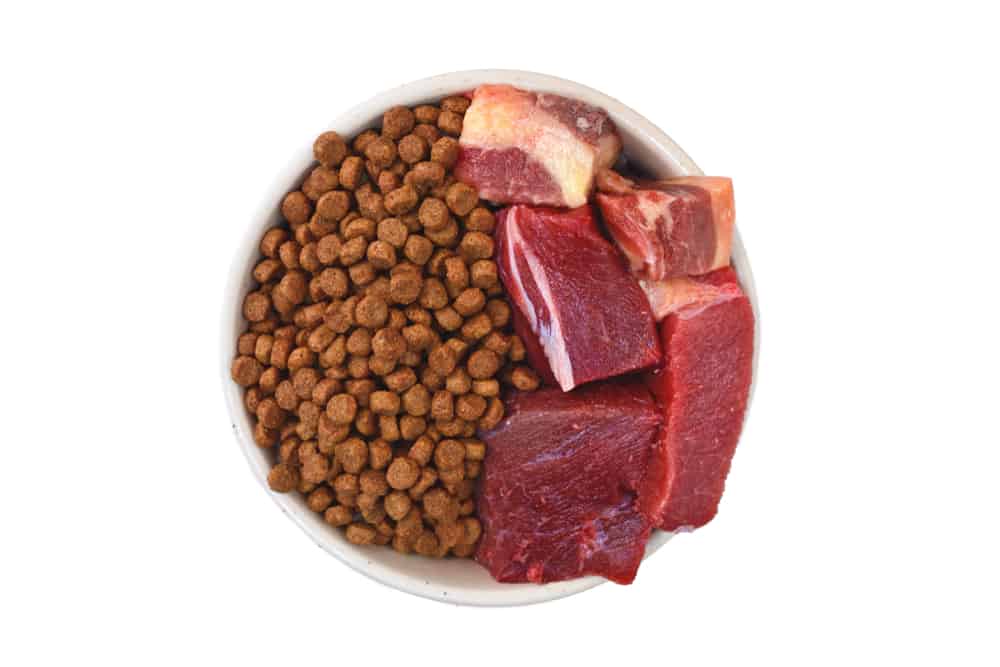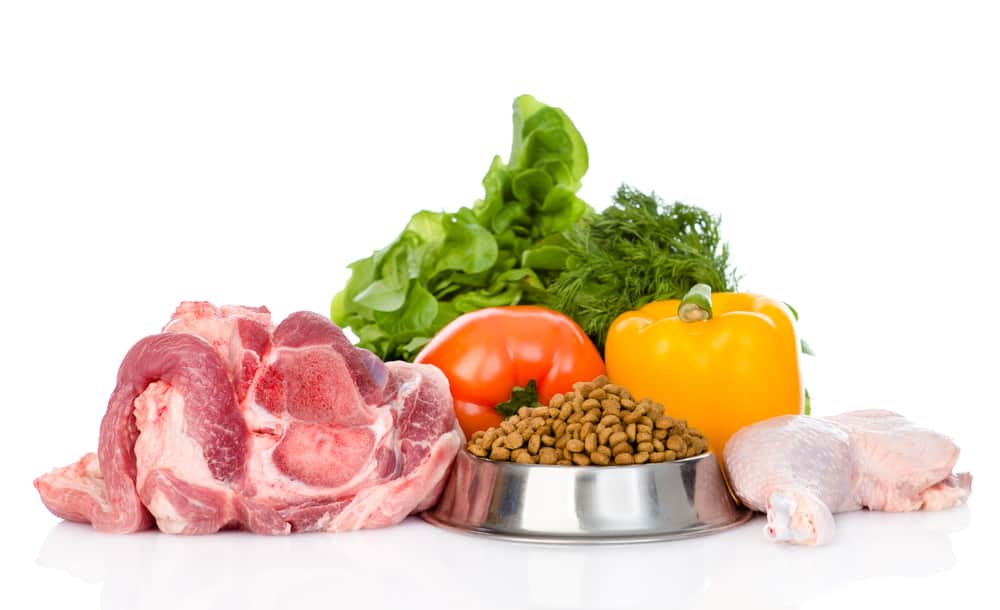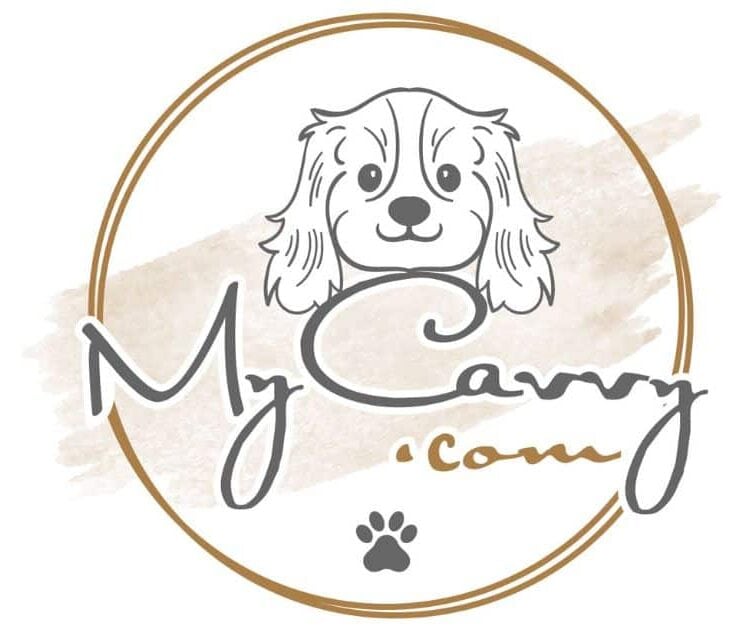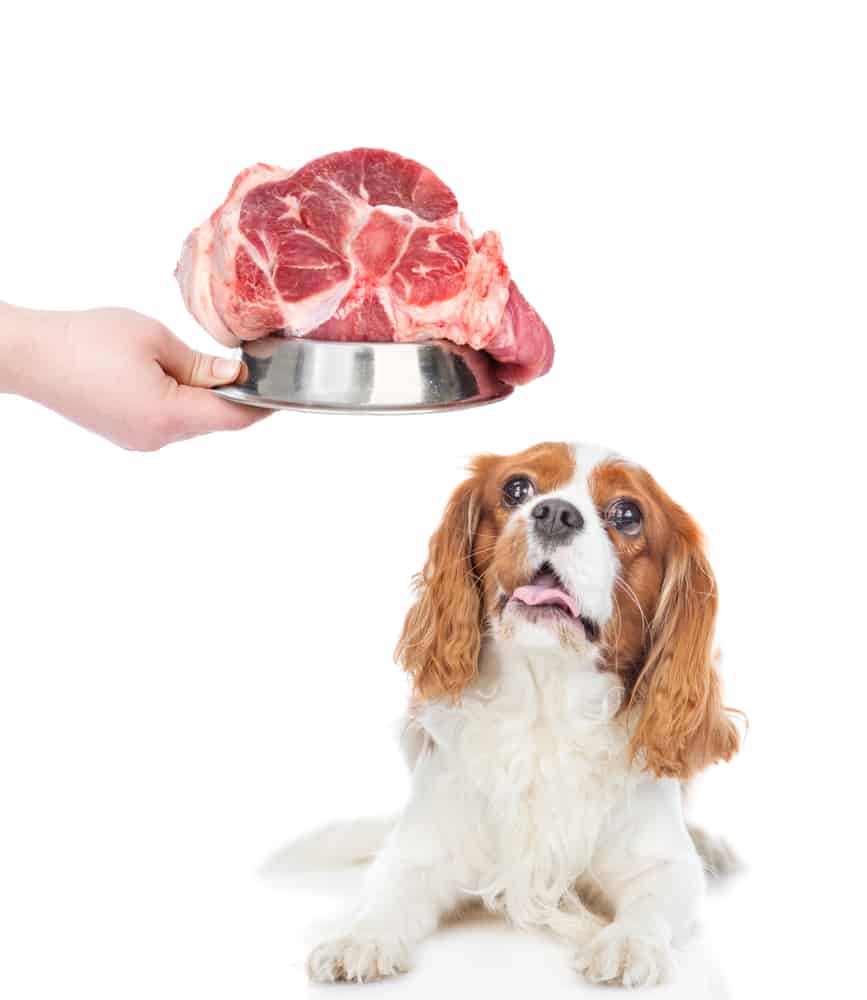Small dogs, especially Cavalier King Charles Spaniels, require particular attention to their diet and nutrition to maintain overall health and weight. The correct caloric intake and nutrients are vital for a healthy coat and skin and prevent them from becoming overweight. That being said, is beef good for Cavaliers?
Beef meat, liver, and heart can offer high-quality protein, vitamins, and minerals necessary for a Cavalier King Charles Spaniel’s health. However, always consult your veterinarian if your Cavalier has a sensitive stomach or allergies.
One important consideration for Cavalier owners is whether or not beef is a suitable protein source for their beloved canine companions. Beef can provide essential nutrients that contribute to a healthy and balanced diet. Still, it is important to consider the specific needs of Cavalier King Charles Spaniels to determine if it is a good choice for them.
Nutritional Requirements for Cavalier King Charles Spaniels
Calories and Protein
Adult Cavalier King Charles Spaniels should weigh around 13 and 18 lbs (5.89 and 8.16 kg). Based on these average weights, the average Cavalier requires between 370 and 475 calories per day to maintain its weight.
Their diet should contain around 18% protein to maintain overall health and energy levels. Protein is crucial for building and repairing tissues and maintaining strong muscles.
Some common protein sources for dogs include beef, chicken, fish, and lamb. When considering beef as a protein source, consider the quality and nutritional balance. Always select lean cuts of meat to avoid excessive fat content in your dog’s diet.
Essential Fatty Acids
As with humans, Cavalier King Charles Spaniels also require essential fatty acids to support their overall health. These fatty acids are crucial for maintaining a healthy coat, skin, and immune system. They also contribute to cognitive function and help reduce inflammation.
Foods rich in essential fatty acids include fish, flaxseed, and certain plant-based sources like chia seeds. If you feed your Cavalier beef, try incorporating these additional sources of essential fatty acids to ensure a well-rounded diet.

Vitamins and Minerals
It’s important for a well-balanced diet to include essential vitamins and minerals. Cavaliers specifically need the following:
- Vitamin A: Supports vision, growth, and immunity.
- Vitamin E: Protects cells from damage and supports a healthy immune system.
Both vitamins A and E can be found in various types of meat, including beef, vegetables, and fruits. Make sure to provide a variety of foods to ensure your Cavalier King Charles Spaniel meets its vitamin and mineral requirements.
Additionally, consider using homemade vitamin and mineral mixes to supplement your dog’s diet further.
Remember to consult your veterinarian before changing your Cavvy’s diet. They can provide the best guidance on ensuring your Cavvy receives the proper nutrients based on their needs, age, and health status.
Allergies and Sensitivities
Common Food Allergens
Although Beef is generally good for your Cavalier, it may not be the best thing to feed them. Cavaliers can be susceptible to food allergies and sensitivities like any other dog breed.
Beef is listed with the most common culprits: dairy, wheat, egg, lamb, pork, and rabbit.
Allergies in dogs typically result in symptoms such as itching, ear infections, foot infections, vomiting, and diarrhea.
Grain-Free and Alternative Diets
Due to their potential sensitivities to certain foods, many Cavalier owners may opt for alternative diets. Grain-free diets are becoming increasingly popular, as they exclude common grains like wheat, corn, and soy, which can be problematic for some dogs.
When considering a grain-free diet, you may also want to look for a formula that includes L-carnitine, an essential nutrient that promotes overall health.
It is important to make a gradual transition when switching to another diet. According to veterinarians’ recommendations, you should follow these steps:
- Week 1: 25% new food and 75% old food
- Week 2: 50% new food and 50% old food
- Week 3: 75% new food and 25% old food
- Week 4: 100% new food
Consider your veterinarian before significantly changing your Cavvys diet, especially if you suspect allergies or sensitivities. They can guide you in choosing the best food formula and managing any existing health concerns.
Ingredients for Optimal Diet
Meat Sources
Cavaliers require a diet with high-quality meat protein sources and a large emphasis on high quality.
One of the recommended meat ingredients is beef, as it provides essential amino acids to support muscle growth and development and offers a good range of vitamins and minerals.
Other suitable protein choices for your Cavalier can be chicken, turkey, and fish. Choosing lean meats is crucial, as too much unhealthy fat can lead to obesity, which can cause health issues in these small dogs.
This Beef & Barley recipe from Spot and Tango addresses the dietary needs of Cavvys as they are prone to weight gain due to their low energy levels and their obsession with food. By including such ingredients in a balanced recipe, your Cavalier King Charles Spaniel may benefit from the nutritious value of beef without negatively affecting their weight.
However, consulting with a veterinarian before making any significant changes to your dog’s diet is crucial.
Introducing new food or adjusting their intake should be done gradually to avoid digestive issues. Ultimately, the well-being of your Cavalier is of the utmost importance, and any dietary changes should prioritize their health and nutritional requirements.

Vegetables and Fruits
In addition to lean protein sources, your Cavalier King Charles Spaniel’s optimal diet should include a variety of vegetables and fruits.
These fresh ingredients offer essential vitamins, minerals, and antioxidants that promote health. Some recommended vegetables for their diet include beets, green beans, and carrots. Fruits, like cranberries and blueberries, can provide additional sources of antioxidants and nutrients.
However, avoiding certain harmful human foods such as chocolate, grapes, raisins, and avocados is crucial, which can be toxic to your Cavalier King Charles Spaniel.
Never give your doggo any human food without researching it thoroughly. If in any doubt, a quick call to the vet won’t hurt.
I prefer to be overly cautious when giving my fur baby anything I’m unsure about.
Whole Grains and Fiber
Whole grains and fiber are essential for an optimal diet for Cavalier King Charles Spaniels. Quality sources of whole grains like barley, brown rice, and oatmeal can contribute to digestive and heart health, providing sustained energy to keep your dog active and happy.
When considering a commercially-produced dog food, like Merrick’s Grain-Free Texas Beef + Sweet Potato Dry Dog Food, make sure it contains complex carbohydrates and premium fiber to aid digestion and maintain a healthy weight.
Remember that your Cavaliers’ nutritional needs are unique to their breed, age, and activity level. Always consult with your veterinarian about specific dietary recommendations and discuss any changes in their diet.

